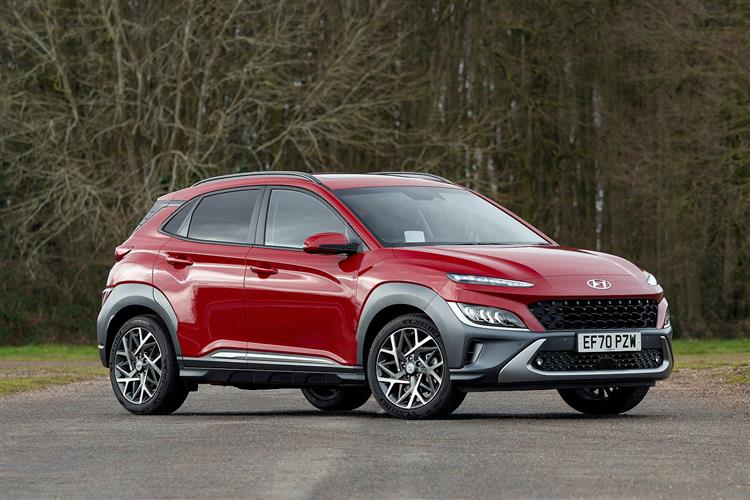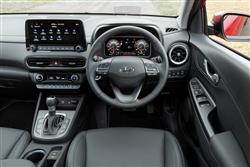CLEVERER KONA (some text hidden) --NONE--
By Jonathan Crouch
Introductionword count: 75
A little surprisingly, there weren't many full-hybrid small SUV crossovers on the market between 2019 and 2023 - just conventional models, mild hybrids and full-electric contenders. But back at the end of the 21st century's second decade, Hyundai noted the success that Toyota's C-HR was having in providing a full-hybrid option in this segment and in response, used the engineering first seen in the first generation Kia Niro to bring us this Kona Hybrid model.
Modelsword count: 5
5dr SUV [1.6 GDi Hybrid]
Historyword count: 215
The Kona small SUV, named after the island of Hawaii's Kona district, proved to be one of Hyundai's strongest-selling models at the end of the 21st century's second decade. It was first launched in 2017 with a range of petrol and diesel engines, but the diesel was effectively replaced in 2019 by the Kona Hybrid variant we look at here, a petrol/electric derivative using much of the engineering already seen in the company's frugally-focused IONIQ model. We ought to clarify the terminology here. 'Hybrid' is a word bandied about quite a bit these days, but very often in this class it designates 'mild hybrid' technology, the sort of thing offered in this sector in this period in, say, a Ford Puma, which sees a normal combustion engine only very marginally electrified by a tiny battery positioned under the rear seat. Full-Hybrid engines are very different and, unlike mild hybrids, can switch to full-electrification in city motoring. Back in 2019, Toyota's C-HR and Kia's Niro were the only other models currently offering such a thing in the small SUV segment. The Kona Hybrid got a mild facelift in 2021, which brought a general smartening up of the styling. And a much enhanced level of media tech inside. A new MK2 Kona Hybrid design arrived in mid-2023.
What You Getword count: 229
It's difficult to distinguish a Kona Hybrid from a conventional petrol model, but brand loyalists will perhaps note 16-inch wheels of a design bespoke to the hybrid model and the special 'Blue Drive' badging used on the wings and tailgate. Inside, there's a cabin distinguished in this hybrid model by white accents around the air vents and gear lever surround, as well as accompanying white stitching to the seats. The pre-facelift base 'SE' model gets a 7-inch centre-dash touchscreen but further up the range, that's replaced by a larger, more sophisticated 10.25-inch monitor. Through the wheel, the instrument cluster's slightly different, as you'd expect it would be in a full-hybrid model, the left hand gauge replaced by a dial with blue 'Charge', green 'ECO' and white 'Power' sections. You can also bring up an informative energy flow meter to display between the gauges which shows you at any given time what's being powered by or charging what. What about rear seat space? Well as it turns out, by the modest standards of the small SUV segment, it's not too bad in the back for the carriage of two folk, providing they're not especially lanky of leg. Out back, there's a 361-litre boot that's the same size as that of the ordinary petrol model. You can extend it in size to 1,143-litres when the 60:40 split-folding rear backrest is flattened.
To see the full road test text contact us on 0330 0020 227
Pictures (high res disabled)

.jpg)
|
.jpg)
|
.jpg)
| |||
.jpg)
|
.jpg)
|
.jpg)
| |||
.jpg)
|

|
Scoring (subset of scores)
Category: Hybrid, Plug-in, Electric & Hydrogen
| Performance | |
| Handling | |
| Comfort | |
| Space | |
| Styling, Build, Value, Equipment, Depreciation, Handling, Insurance and Total scores are available with our full data feed. | |



